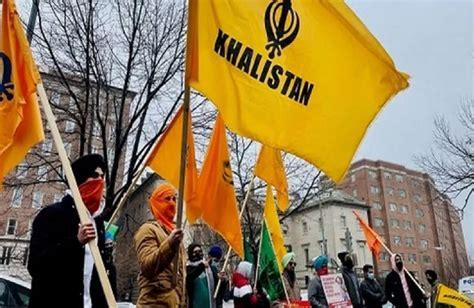
Khalistani extremism: Talks on with counter-terrorism group, says Canadian foreign ministry
Ottawa is aware that concerns over Khalistani extremism and transnational crime are “top of the mind” for New Delhi and exchanges on this matter are ongoing with a Canada-India counter-terrorism working group expected to meet soon, a senior official of the Global Affairs Canada (GAC), the country’s foreign ministry, has said.
That was stated during the course of testimony from Weldon Epp, assistant deputy minister for the Indo-Pacific, before the House of Commons Standing Committee on Foreign Affairs and International Development earlier this month.
Epp said that “the premise is correct that concerns about Khalistani extremism and transnational crime are top of mind for the Indian government.” In this context, he said the two countries “had long-standing exchanges on this matter, and in some cases we’ve been able to advance those exchanges through structures. For example, we have an ongoing, GAC-led, Canada-India counterterrorism working group. That group will be meeting again soon,” according to a video of the testimony posted on the Standing Committee’s webpage.
The senior Indian official confirmed that meeting is expected in April and the details for it are being worked out.
“India has raised particular concerns around Canada-based Khalistani violent extremism. We have made our position clear: Canada supports the unity and territorial integrity of India. While Canadians are free to peacefully express their views, if crimes are committed in Canada, we expect law enforcement to act regardless of who the perpetrator is,” Epp said.
The session, On February 5, was a ‘Briefing on Diplomatic Relations between Canada and India’ and the focus was the challenge ties were facing following their cratering after Canadian Prime Minister Justin Trudeau’s statement in the House of Commons on September 18 last year that there were “credible allegations” of a potential link between Indian agents and the killing of pro-Khalistan figure Hardeep Singh Nijjar three months earlier.
In fact, the secessionist group Nijjar was associated with, Sikhs for Justice (SFJ), organised protests outside India’s consulates in Toronto and Vancouver on Saturday to mark the fifth month of the killing.
Epp described as a “positive development” India constituting a high-level inquiry into the allegations in an indictment unsealed in a New York court over an attempt to kill SFJ’s general counsel Gurpatwant Pannun. Epp felt it was “reasonable to assume that, when the RCMP (Royal Canadian Mounted Police) investigation reaches a comparable inflection point here in Canada, more information will be available for the Indian government and its high-level committee to consider.”
Source » hindustantimes.com





